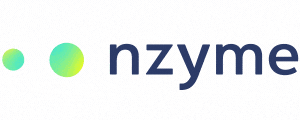Rethinking the “erosion of in‑house capability” risk.
Whatever their title, Key Account Managers (KAMs) play an important role in modern pharma and healthcare. This is not just about sales or quarterly results; when done well, Key Account Management (KAM) is a cross‑functional, long‑term effort to co‑create value with major customers. Effective KAM programmes have been shown to accelerate growth—for example, strategic KAM initiatives can drive up to 50% faster growth in key accounts, leading to stronger market share and better launch outcomes. As healthcare evolves, pharma companies in the UK and Europe must build relationships with non‑traditional customers who speak in business cases, focus on system value, and deliver on value‑based care objectives. The challenge: retain value in traditional key accounts, keep KAM teams focused on their metrics, and simultaneously develop new approaches, skills, networks, and relationships. Our solution - Outsource this function to a specialist sub-national access team while you develop internal capability.
The snag? - As a provider of specialist teams, we often hear a perceived conflict: outsourcing across rapidly evolving commissioning and provider networks versus the risk to organisational learning and capability. It’s an area where conventional thinking needs to be challenged.
Customer dynamics are changing fast
Across Europe, healthcare delivery has shifted from individual prescribers to institutional decision‑makers. Hospitals and integrated care networks are consolidating and using rigorous analytics to assess cost‑effectiveness and outcomes. Payers and health systems are adopting holistic, value‑driven approaches—often partnering with pharma to improve patient outcomes and manage population health. In the UK, the NHS’s move towards integrated care and outcome‑based purchasing means pharma must engage multiple stakeholders (clinicians, procurement, payers) with a unified strategy—and speak the language of business cases.
What do we mean by KAM?
KAM is a cross‑functional strategy. Unlike traditional sales, it coordinates medical, marketing, market access and other functions to address the “triumvirate” of prescribers, payers and patients in each account. It demands specialised competencies—strategic planning, account mapping, value communication and stakeholder management—that go beyond product knowledge. Many companies have recognised that simply re‑badging reps as “KAMs” is not enough; building true KAM capability requires investment in new skills, tools and internal processes. It is also worth asking whether some emerging needs—population health, business‑case development, health economics and capacity planning—belong within the KAM profile or are better anchored elsewhere.
Rethinking the “erosion of in‑house capability” risk
Consensus thinking has it that;
Erosion of In-House Capabilities: Over-reliance on external KAM teams can degrade internal skills over time…If a company outsources key account management for long periods, its own staff may not develop the strategic customer engagement competencies that are essential for success in a changing market. As one industry analysis notes, long-term outsourcing can “erode in-house skills” and reduce the company’s direct control over brand and messaging consistency. In essence, the organisation risks becoming hollow in a critical function, which can be dangerous if market conditions change or if it needs to bring operations back in-house in the future.
Yet evidence also suggests that suppliers who effectively disseminate customer knowledge internally achieve stronger KAM performance; organisations that fail to share knowledge suffer weaker outcomes and inefficiencies.
Outsourcing parts of the commercial function to Contract Sales Organisations (CSOs) is now common—over 50% of pharma companies outsource at least some sales or commercial activities. CSOs provide flexibility, rapid scaling and, in our case, specialised expertise. The real risk is not outsourcing per se, but poor knowledge transfer and weak alignment. Given that as much as 42% of institutional knowledge can reside solely in individuals, the priority should be systematic capture and sharing.
Outsourcing with knowledge transfer by design
Work with partners through trusted, transparent relationships in which both sides share knowledge and commit to long‑term objectives. In practice, that means joint strategy sessions, open data sharing, and clear KPIs that track not only short‑term sales but also account development and customer satisfaction.
How our Catalyst team works
Long‑standing, locally embedded teams—such as the nzyme Catalyst team—can accelerate relationships while building your internal capability. We make integration, knowledge transfer, learning and development, and coaching standard parts of long‑term engagements. We enhance internal KAM skills through training, coaching and cross‑functional exposure. Where we step in to close relationship or engagement gaps, we create a transition plan for your talent to shadow our team and, where appropriate, take over. We ensure the right tools and training are in place to realise your KAM’s promise and future‑proof your business. We also help secure internal stakeholder buy‑in and educate the wider organisation (medical, market access, supply, etc.) about the sub‑national access strategy so everyone works in concert. Ultimately, outsourcing fieldwork should not mean a hands‑off approach; you act as the orchestrator and knowledge hub.
Evolving systems demand continuous knowledge alignment
European system transformation—from the NHS’s integrated care pathways to payers’ emphasis on value‑based healthcare—makes continuous knowledge alignment essential. The backbone of effective outsourcing is knowledge transfer; done well, it enables seamless transitions and surfaces opportunities for improvement and innovation.
To find out how the nzyme Catalyst team can rapidly access emerging customers, improve your sub-national access and your organisation’s productivity and future‑proof your success, get in touch.
